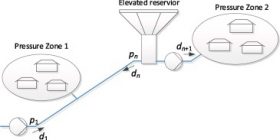Kgs. Lyngby, Denmark – October 9, 2019. Hosted by IEA TASK 60 and CITIES
Programme for the PVT workshop
Part 1
Jean-Christophe Hadorn, Switzerland:
PVT systems – an introduction to the technology and Task 60
Thomas Ramschak, AEE, Austria:
Solar Heat Worldwide – PVT market analysis
Korbinian Kramer, Fraunhofer ISE, Germany:
PVT – Challenges for and by Certification for a well organized market penetration
Daniel Zenhäusern SPF, Switzerland:
Key Performance Indicators for PVT Systems
Dr. Korbinian Kramer, and Sebastian Helmling, Fraunhofer Institute for Solar Energy Systems ISE:
Initiative for market establishment and market penetration of PVT- heat pump heating systems
Part 2
Svend Erik Mikkelsen, COWI, Denmark:
Market potential for PVT, COWI
Niels Radisch, Rambøll, Denmark:
Light weight BI-PVT and ground heat pump
Peder Bacher, DTU Compute, Denmark:
Smart control of energy systems with PVT
Mark Dannemand, DTU Civil engineering, Denmark:
Research projects within PVT at Technical University of Denmark
Part 3 – Presentation of PVT collector manufactures
Dual Sun, Laetitia Brottier, France:
PVT an interesting option for the Nordic climates. Examples of installations with DualSun
Abora, Marta Cañada, Spain:
ABORA CONTRIBUTION – TO TASK 60
Sunovate, Glen Ryan, Australia:
INNOVATING SOLAR. Using PV’s for renewable heat and electricity




